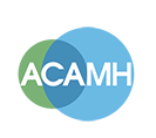Dark
Visual Abstract
An epidemiological study of ADHD symptoms among young persons and the relationship with cigarette smoking, alcohol consumption and illicit drug use
Gisli H Gudjonsson, Jon Fridrik Sigurdsson, Inga Dora Sigfusdottir, Susan Young
Summarized by:
Charles Li, MD
December 23, 2022
study source

J Child Psychol Psychiatry
March 2012
🤔
Are teenagers with ADHD more likely to engage in substance abuse?
💨
One study in Iceland found that teenagers with ADHD were more likely to drink, smoke, and use drugs than their peers.
🧠
Those who used the most substances had the most severe ADHD symptoms.
An epidemiological study of ADHD symptoms among young persons and the relationship with cigarette smoking, alcohol consumption and illicit drug use
Background
ADHD is one of the most common psychological disorders among children and adults. Studies have demonstrated a significant relationship between ADHD and heavy drinking:
Researchers in the study wanted to examine potential links between ADHD, smoking, drinking, and illicit drug use.
Study Quote
Background: This study investigates the relationship between attention deficit hyperactivity disorder (ADHD) symptoms and cigarette smoking, alcohol use and illicit drug use.
Method
They recruited 10,987 teenagers and evaluated them for anxiety, depression, attitudes toward authority, ADHD, smoking, drinking, and drug use.
Study Quote
Method: The participants were 10,987 pupils in the final three years of their compulsory education in Iceland (ages 14-16 years). The participants completed questionnaires in class relating to anxiety, depression and antiestablishment attitudes, ADHD symptoms, smoking, alcohol consumptio...
Show More
Results
They found that around 5% of the teenagers they evaluated met the criteria for ADHD.
The data showed that those with ADHD were likelier to smoke or drink than their peers.
One study found that teenagers who have ADHD are more likely to smoke and drink than their peers.
They were also more likely to report using illicit drugs. For example, teenagers in the study with ADHD were eight times more likely than their peers to use LSD.
Compared to their peers, teenagers with ADHD symptoms were significantly more likely to use LSD, cocaine, and mushrooms.
As you can see in the chart below, there was a clear relationship between the number of substances someone used and the severity of their ADHD symptoms.
Those who used more substances had more severe ADHD symptoms.
Girls who used the most substances had the most severe ADHD symptoms.
Those who used more substances as teenagers had more ADHD symptoms. Girls who used three substances had the highest ADHD scores in the study.
Study Quote
Results: Of the total sample, 5.4% met screening criteria for ADHD. Smoking, alcohol and illicit drug use were significantly related to ADHD symptoms. In addition, the number of different illicit drugs consumed was significantly higher among the ADHD symptomatic than the nonsymptomatic p...
Show More
Conclusions
Based on the results of this study, researchers concluded that teenagers with ADHD are vulnerable to smoking, drinking, and illicit drug use.
One of the reasons may be that teenagers with ADHD might be trying to self-medicate. Many individuals with ADHD don’t know they have it and are not receiving treatment.
Often, smoking and drinking can offer relief from ADHD symptoms.
By screening and identifying teenagers with ADHD, we may be able to ensure that they receive the treatment they need and potentially prevent substance use or substance addiction.
Study Quote
Conclusions: The findings underscore the vulnerability of young persons with ADHD symptoms to smoking, alcohol and illicit drug use, possibly as a means of self-medication, and emphasize a need for early identification and treatment to reduce the risk of escalation.